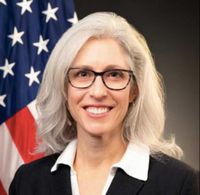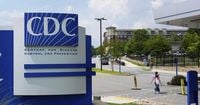The Centers for Disease Control and Prevention (CDC) is in the throes of an unprecedented leadership crisis, following the dramatic ousting of its director, Dr. Susan Monarez, and a mass exodus of senior officials. The turmoil, which has unfolded at breakneck speed over the past month, has sent shockwaves through the public health community and raised urgent questions about the future of America’s foremost disease-fighting agency.
Dr. Monarez, the first CDC director in history to be confirmed by the Senate, was dismissed on August 27, 2025—just three weeks after taking office. According to The Washington Post and Daily Voice, her firing came on the heels of a tense standoff with Health and Human Services Secretary Robert F. Kennedy Jr., who reportedly pressured her to endorse a series of controversial changes to the nation’s vaccination policies. Monarez, a staunch advocate for evidence-based public health, refused to support what she called “unscientific, reckless directives,” and defended her staff against mounting political interference.
In the days leading up to her dismissal, Kennedy demanded that Monarez fire several top CDC officials, including Chief Medical Officer Debra Houry, Dr. Daniel Jernigan, and Dr. Demetre Daskalakis, all of whom oversaw critical immunization and disease response programs. Monarez declined, instead seeking support from Senator Bill Cassidy, the Republican chair of the Senate health committee. This move only appeared to escalate tensions, with Kennedy reportedly accusing Monarez of being a “leaker” and warning her to resign or face termination.
When Monarez refused to step down, the White House acted swiftly. “Susan Monarez is not aligned with the president’s agenda of Making America Healthy Again,” Trump spokesman Kush Desai declared. “Since Susan Monarez refused to resign despite informing HHS leadership of her intent to do so, the White House has terminated Monarez from her position with the CDC.”
Monarez’s attorneys, Mark S. Zaid and Abbe Lowell, countered that neither Kennedy nor the White House had the authority to fire her, citing her Senate confirmation. “It is about the systematic dismantling of public health institutions, the silencing of experts and the dangerous politicization of science,” they said in a statement. They accused Kennedy and his department of “weaponizing public health for political gain and putting millions of American lives at risk.”
The fallout was immediate and severe. Within hours of Monarez’s dismissal, a wave of resignations swept through the CDC’s upper ranks. Dr. Debra Houry, Dr. Daniel Jernigan, Dr. Demetre Daskalakis, and Dr. Jennifer Layden all stepped down, citing an environment of “weaponization of public health” and the spread of vaccine misinformation. In an impassioned resignation letter shared with colleagues and later posted to X, Daskalakis wrote, “I am not able to serve in this role any longer because of the ongoing weaponization of public health. The lack of communication by HHS and other CDC political leadership that culminates in social media posts announcing major policy changes without prior notice demonstrates a disregard of normal communication channels and common sense.” He warned that “having to retrofit analyses and policy actions to match inadequately thought-out announcements in poorly-scripted videos or page-long X posts should not be how organizations responsible for the health of people should function.”
Houry echoed these concerns, warning that proposed budget cuts and reorganization plans would undermine the CDC’s ability to protect public health. “For the good of the nation and the world, the science at CDC should never be censored or subject to political pauses and interpretations,” she wrote. “Vaccines save lives—this is an indisputable, well-established scientific fact.”
The leadership meltdown couldn’t have come at a worse time. Just weeks earlier, a gunman who claimed the COVID-19 vaccine made him ill opened fire outside CDC headquarters in Atlanta, killing a police officer and himself. The shooting, which left the campus on edge, underscored the dangers of rising vaccine misinformation and the critical need for steady, science-based leadership.
Meanwhile, Kennedy pressed ahead with his agenda. He dissolved the CDC’s influential vaccine advisory panel, replacing its members with his own picks. The new board quickly moved to recommend flu shots without a chemical that conspiracy theorists have long claimed causes autism—despite overwhelming scientific evidence to the contrary. Kennedy also limited approval for new COVID vaccines to only those 65 and older or with severe risk factors, a sharp departure from previous, broader recommendations.
These moves have alarmed public health experts and lawmakers from both parties. Senator Bill Cassidy, who played a pivotal role in confirming Kennedy as Health Secretary, expressed deep concern over the high-profile departures. “These high-profile departures will require oversight,” he said, emphasizing the potential impact on children’s health and calling for a pause on further changes to the CDC’s vaccine advisory process. Cassidy’s earlier support for Kennedy’s confirmation has come under scrutiny, with some experts arguing he “bears some responsibility” for the current crisis.
Former CDC leaders have not minced words about the dangers of the agency’s weakening. Dr. Mandy Cohen, who led the CDC during the Biden administration, called the departing officials “exceptional leaders who have served over many decades and many administrations,” warning, “the weakening of the CDC leaves us less safe and more vulnerable as a country.” Dr. Anne Schuchat, a former principal deputy director, described the exodus as a loss of “the best of the best,” adding, “I think we should all be scared about the nation’s health security.”
On Capitol Hill, the leadership crisis has deepened partisan divides. Senator Patty Murray, a senior member of the Senate Health, Education, Labor and Pensions Committee, called for Kennedy’s resignation, stating, “Director Monarez is not the problem, RFK Jr. is. He’s a dangerous man who is determined to abuse his authority to act on truly terrifying conspiracy theories and disinformation—leaving us unprepared for the next deadly pandemic and snuffing out potential cures while he’s at it.”
For his part, Kennedy remains defiant, insisting that the CDC is in need of reform. In a recent media appearance, he declared, “some people should not be working there anymore,” further fueling tensions and reinforcing calls for his own ouster.
As the dust settles, the CDC faces a daunting road ahead. With its leadership hollowed out and its credibility under fire, America’s top public health agency stands at a crossroads. The stakes could hardly be higher, as experts warn that a weakened CDC could undermine the nation’s ability to respond to current and future health threats, from infectious disease outbreaks to the ongoing battle against vaccine misinformation. The coming months will test whether the agency—and the country—can weather this storm and restore trust in the science that underpins public health.


